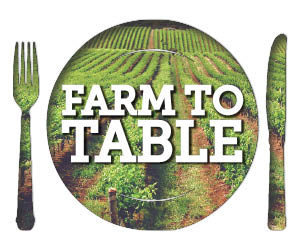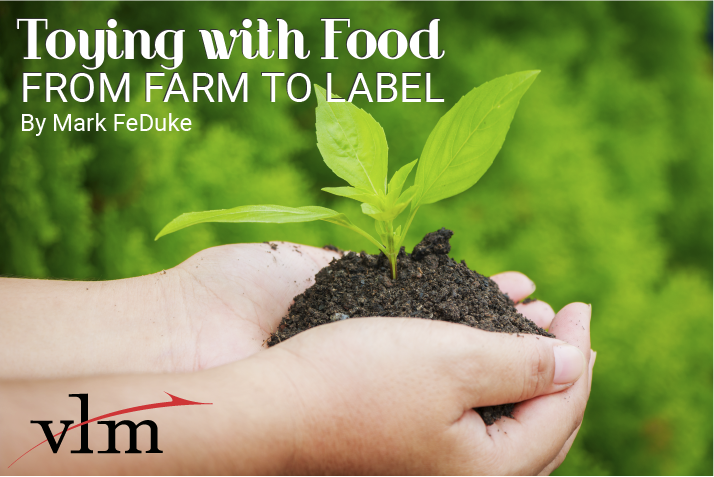Challenges in our Food System
As the saying goes, we reap what we sow. Far from merely being a snappy metaphor, this truism is the foundation upon which our food system is based. Furthermore, if we replenish and nurture our soils they will continue to feed us. If we fail to do so, they erode leaving land barren and I think it to be generally held that you get what you give and untended gardens bear less fruit.

And so, we act deliberately guiding our food system towards its goal. But what is that goal? And while we are at it, do our supply chain actions align or break with this goal? With a systems approach in mind, it’s worth considering research conducted by business school professors Beamish and Babuji. Toys are supposed to entertain and enliven our children but as these researchers point out, problematic toys send children to hospital every year. Looking at 20 years’ worth of toy recall data, Beamish and Babuji found that most recalls were due to design flaws rather than manufacturing errors and while Asian toy manufacturers were usually the target of consumer complaints, the researchers found that the problematic toys were usually designed by folks at corporate headquarters in the U.S. and Europe. As such, where should consumer ire be directed? If poor design plays such a critical role in toy recalls, how much of our food system’s challenges stem not from mistakes but from well-intended though problem causing policies and norms?
Farm to Label Food and Beverage Executive Summit
Heady topics like this came to mind at last week’s Davis Wright Tremaine Farm to Label Food and Beverage Executive Summit. Now in its 5th year, the Portland Oregon based summit brings together a range of food system stakeholders for open and often challenging discussions. Speakers raised questions on greenwashing and the risks posed by folks turning a blind eye to fraudulent animal welfare certification. Breakout panel discussions explored issues of food waste; e-commerce as a disruptor to food channel delivery networks as well as topics addressing supply chain traceability; label liability; learning from startups and opportunities to reinvigorate established food businesses. In addition to these, I had the privilege of being part of a panel discussion focusing on trade and customs issues.
Farm to Label 2017 – 5th Annual Food & Beverage Executive Summit

FSMA’s Foreign Supplier Verification Program
Not surprisingly, our panel ended up spending a great deal of time explaining, discussing and raising questions about FSMA’s Foreign Supplier Verification Program. A discussion which proved especially timely given the May 30th start date for FSVP Importer identification at time of customs entry.
Much as the food waste panel raised issues of regulation as a source of food waste generation, our panel noted FSVP’s possibly unintended supply chain consequences. More specifically, foreign businesses that have traditionally operated as non-resident importers are now finding that they are ineligible to operate as the FSVP Importer leading, in many cases, to supply chain stakeholders revisiting their contracts and the measures they employ in assigning and addressing regulatory liabilities.
Placing our panel discussion within the wider context of systems and system design, FSMA might be thought of as an overdue intervention towards getting our food system back on track. Policies, for example, that were aimed at limiting food price inflation have more than likely contributed to both the generation of food waste and individual consumer overconsumption which itself presents a contributing factor in the proliferation of chronic diseases. Similarly, toying with supply chain efficiency at the expense of food system integrity surely contributes to product quality failures, product recalls and outbreaks of foodborne illness. After all, in certain sectors it has been almost customary for food to be purchased sight unseen. For importers to mitigate administrative costs by executing oversight by way of blind faith and for food safety to be handled by accounting departments who withhold payments pending certificates of analysis which bookkeepers are unqualified to read but quite adept at placing in files.

Time for a Change in our Food System
With parts of our food system investing too much in order winning attributes like price and speed to market metrics while simultaneously neglecting order qualifying attributes like product and system integrity management, it was perhaps normal for the regulatory pendulum to have swung as far as it has. With this in mind, perhaps it’s time for our food system, as a whole, to toy less with efficiencies and instead rededicate itself to foundational goals and I for one am encouraged that we might be nudging our way in that direction. After all, it wasn’t very long ago that I would get calls from non-resident food importers looking to “get around” FSMA while the calls I’ve been getting recently are all about seeking guidance on best practices in FSMA compliance.




